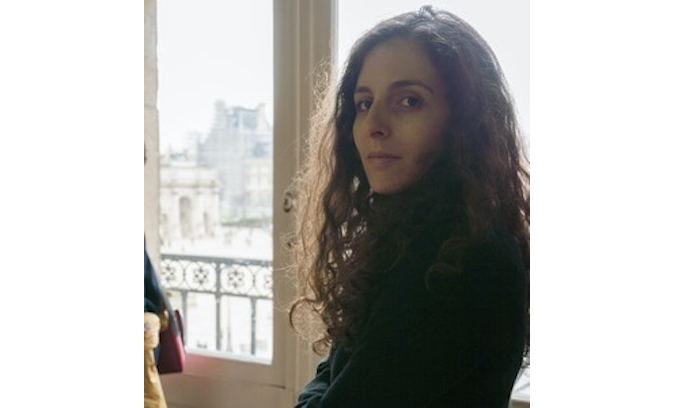Graduate Student Poets: Jessica Laser

This piece is the first in a series about graduate student poets in the Department of English at Berkeley.
Jessica Laser joined the English Department as a Ph.D. student in Fall 2017. She is the author of Sergei Kuzmich from All Sides (Letter Machine Editions, 2019) and Planet Drill, winner of the Other Futures award and forthcoming this winter from Futurepoem Books, along with two chapbooks. She holds degrees from the Iowa Writers’ Workshop and Brown University. In addition to teaching at Berkeley, she has taught at the Iowa Writers’ Workshop, Parsons School of Design, SUNY Purchase, Hugo House, and other institutions.
At Berkeley, Jessica has served as co-curator of the Holloway Poetry Series, co-organizer the Townsend Center-funded Contemporary Poetry and Poetics Working Group, and a Simpson Fellow with the New Literary Project. She is currently working on a dissertation titled “Robert Frost: The Poet as Poet.” Her poem “Berkeley Hills Living” was recently published in The Yale Review, and other new work can be found in Solar and The Volta. Her Holloway reading with Chris Nealon can be viewed here.
We asked Jessica about her recent activities and how she balances her creative and critical writing. Here’s what she said:
I’m writing you now from a summer residency, The Mastheads, where I’ve been working in a studio on Melville’s Arrowhead. I just came from my fifteen minute slot in the estate’s annual marathon reading of Moby Dick. Here, I’ve been writing poems, but with an awareness of my temporary participation in The New England Tradition as a writer residing—you know where.
As for my research, speaking of New England, I’m trying to get a dissertation on Robert Frost off the ground. I chose him because of an insistence in his thinking that I wanted to maintain in my own: “God forbids that I should have to be an authority on anything even the psyche before I can set up for an artist,” he wrote in a 1929 letter to his friend (and sometime biographer) Sidney Cox. “A little of anything goes a long way in art.” Can’t the same be true for writing about poetry?
I’m wary of the idea, so common in the academy, that more knowledge means more expertise. And, as a maybe too-educated person, I’m hungry for the forms of attention and experience too much knowledge obscures. In a lecture, “Education by Poetry,” Frost talks about “coming close to poetry.” He says there are two ways to come close: one “by writing poetry,” the other “in the reading of it, not as linguistics, not as history, not as anything by poetry.” My dissertation is supposed to explain what Frost’s “not as anything but poetry” means—but don’t we just know? And even if it’s not impossible to describe a feeling, a resonance, I am, sometimes, sick of trying.
Let me be clear: I want my medical doctor to know as much as she can about the human body, but I also want her to be able to attend to whatever’s happening in mine, specifically. To borrow a formulation from Alice Miller, I don’t want any reliance on method or theory to get in the way of my capacity to learn from experiencing. “No theory can prevent a person from reacting to it submissively, for even the most enlightened ideas often leave our emotional lives untouched,” she has written. My question as a poet writing a dissertation is how not to be carried away by enlightened ideas that have nothing to do with anything, how to stay close to poetry as I go.
